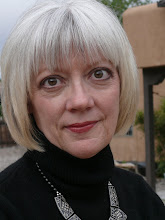Although this post was originally written for a librarian audience, I am sharing it here to illustrate that librarians are equipt to play a role in organizational learning from failure. Read on!
Reproduced from:
Special Librarians Association: Future Ready 365 blog
http://futureready365.sla.org/12/04/a-future-in-failure/
Learning from failure is a key element of the systems thinker.1
As my colleague and SLA Board member Sara Tompson and I have touted, systems thinking sensibilities illustrate an opportunity for librarians and the organizations they serve2. To build onto the element of learning from failure that Edmondson3, Shumaker4 and others have stated it is important for an organization to learn, I’d like to suggest a new special librarian: the failure librarian.
Organizations need to have a strategy in place to learn from their mistakes. Whether the mistakes are one at a time – as in health care – or affect a huge customer base (i.e. Netflix) the understanding of how information, evidence and knowledge can be brought to bear to understand what happened is critical. This approach looks at evidence to inform direction, identify risks, strategize new approaches, and gain from employee/participant experiences to enrich the decision making process. Who better to help with that then the special librarian, as:
o We understand networking.
o We understand the value of information and how to find it.
o We understand what evidence will be most applicable where, when and for whom.
o We understand our leadership and what makes them tick.
o We understand how biases can affect decision making which enables us to seek to counteract them with good information and evidence5.
o We understand the boundaries and silos in our organizations and how to navigate them successfully to connect knowledge workers to enable innovation and problem solving.
o We understand that both explicit and tacit knowledge are important for decision making and seek to find both types of knowledge and respect the conduit no matter where it may exist in the organizational hierarchy.
o We understand that blame-free exploration into what went wrong is the only way to move improvement forward.
o We understand that mental models can both have negative and positive effects and seek to reveal those when they affect decision making and action amongst our staff, our peers and our management.
o We understand that a commitment to generating evidence-based solutions will enable them to be sustainable, efficient and effective.
o We understand we too can play a part in failure and seek to improve our own processes and behaviors to counteract those factors.
Or at least we should.
Our future has within its sights the potential as a positive force in many industries if we deeply understand these things and are ready to recognize failure as an opportunity to partner, innovate, and excel.
1. Senge PM. The Fifth Discipline. New York, NY: Random House; 1990.
2. Zipperer L, Tompson S. “Systems thinking: a new avenue for involvement and growth.” Information Outlook. (December 2006):16-20.
3. Edmondson AC. Strategies for learning from failure. Harv Bus Rev. April 2011;89:48-55. Av
4. Schoemaker PJH. 'Brilliant Mistakes': Finding Opportunity in Failures. Knowledge@Wharton
5. Kahneman D, Lovallo D, Sibony O. Before you make that big decision... Harv Bus Rev. June 2011;89:50-60, 137
Many thanks to my colleagues in the Rio Grande chapter who had a spirited conversation on the Edmondson article that contributed to the thinking that helped to generate this post, and Sara Tompson for editing the draft.
Unleash the power of patients to make care safer around the world: an essay
by Helen Haskell.
-
Haskell H. BMJ. 2019;366:l5565.
6 years ago

No comments:
Post a Comment